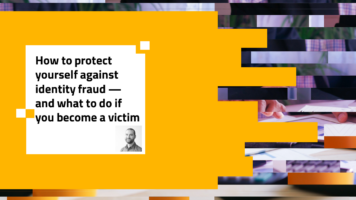Last month the Payment Systems Regulator published its consultation on two of its draft directions which are the legal means to put its new APP scam reimbursement requirements in place with the aim to implement new requirements that will see mandatory reimbursement for victims of APP scams.
There has of course been plenty of discourse in the industry about these plans, and how best to implement controls to meet the requirements. There’s also been concerns raised about the impact they’ll have, and concerningly one that seems to have gained some traction is the belief that it will result in an increase in consumers negligence.
In this article I’ll try and answer the question; Will the PSR regulations increase customer negligence?
People inherently do not want to be the victim of a crime
We see every day how the stigma of being a victim of a scam prevents people reporting these crimes to the relevant authorities, and the abuse those that do receive in the comments section, or the unfortunate cases where those victims feel they have no alternative but to take their own lives.
Why then would we invite this upon ourselves.
Removing the stigma is an important role we have in the industry, as well as understanding the impact these crimes have on individuals and society as a whole and providing support to them. Yes, returning their money solves one problem, but the psychological effects are wide ranging and can take years to assess and try to resolve.
“Particularly when we consider that victims of this crime report suffering multiple long-term psychological impacts including PTSD, and victims who describe the manipulation as so intrusive and psychologically harmful as to be akin to rape”
Confirm Not Command: Examining Fraudsters’ Use of Language to Compel Victim Compliance in Their Own Exploitation – Elisabeth Carter
Why then would we happily engage in this behaviour knowing that if we do end up sending money to somebody who isn’t who they say they are, we’ll get it back and walk away as if nothing has happened. In the case of romance scams, this could not be further from the truth, there has been an emotional relationship formed between the two parties, sometimes formed over months and years. Most of us have gone through a breakup with a partner or friend and know the impact it has, some unfortunately have been in an abusive relationship, factor this into a relationship that’s come crashing down around you based on lies where you’ve distanced yourself from friends and family, you can’t just “shake it off” and move on as soon as we get our money back.
The financial loss is just one part of being the victim of a scam
Experts have examined “links between romance fraud and domestic violence and abuse, revealing similarities between the two in economic abuse, creation of fear, isolation, monopolization, degradation, psychological destabilization, emotional or interpersonal withdrawal and contingent expressions of love”
Distort, Extort, Deceive and Exploit: Exploring the Inner Workings of a Romance Fraud – Elisabeth Carter
It feels like not a day goes by without reading a story in the press about a victim of a scam, and perhaps we’ve become desensitised to it, and say to ourselves “it’ll never happen to me”, but that doesn’t mean it won’t happen to a loved one or perhaps we go through a particularly life changing event which causes us to change our perception and it does happen to us. Nobody wants to be burgled, or robbed, or worse, but they do happen and are treated in a much more traditional way than being scammed.
“Being a victim of burglary is a traumatic experience for anyone and for some it can have a lasting emotional impact. The thought of someone in our home, our safe place, looking through out personal things can leave us feeling violated and vulnerable”
Dr Claire Nee, Department of Psychology, University of Portsmouth
Now think of this in terms of being the victim of a scam; someone in our mind, sharing our life experiences with them, telling them our secrets, our loves, and our dreams, isn’t this just as violating?
The evidence is in front of us.
“In the course of our investigation work, we have seen heart-breaking incidents where victims sink into bouts of depression, self-harm, with some even taking their own lives.”
Why are some in the industry theorising that the new PSR regulations will result in consumers being negligent with their money?
Unfortunately, it’s reflective of the wider problem of how we perceive the victims of scams and the language we use to describe them, “foolish”, “duped”, imagine these words were used to describe the victims of other crimes such as the aforementioned domestic violence, and the perception that all the victims suffer is a financial loss.
“This turn towards the victim can amplify the negative narratives of fraud victimization as the result of greed and ignorance, for which they should be held responsible.”
Distort, Extort, Deceive and Exploit: Exploring the Inner Workings of a Romance Fraud – Elisabeth Carter
Fraud and scams are such a pervasive threat to our society at the moment, and please don’t see this as a negative comment on the upcoming PSR regulations, I very much see these as a step in the right direction, but there’s still more to be done. This is a great step forward to help the victims of scams, but this isn’t a cure for what they’ve experienced; we need to create an aftercare strategy to help with the long lasting effects, to make a conscious shift in how we perceive and talk about these victims…….. otherwise we’re guilty ourselves of being negligent.
Thank you to Dr Elisabeth Carter for speaking much more eloquently than me on this subject and for the help with the content, also to Anna Rowe and Cecilie Fjellhøy for sharing their stories with the world.
Share

 by
by 



